Drawing inspiration from film and art history, Karyn Lyons’ wistful, evocative oil paintings of teenage girlhood are charged with coming-of-age romanticism. In her first solo exhibition at Anat Ebgi, “The End of the Night,” New York-based Lyons presents a suite of intimately scaled, semi-autobiographical oil paintings that capture the tenderness, mischievousness, and enchantment of a bygone adolescence.
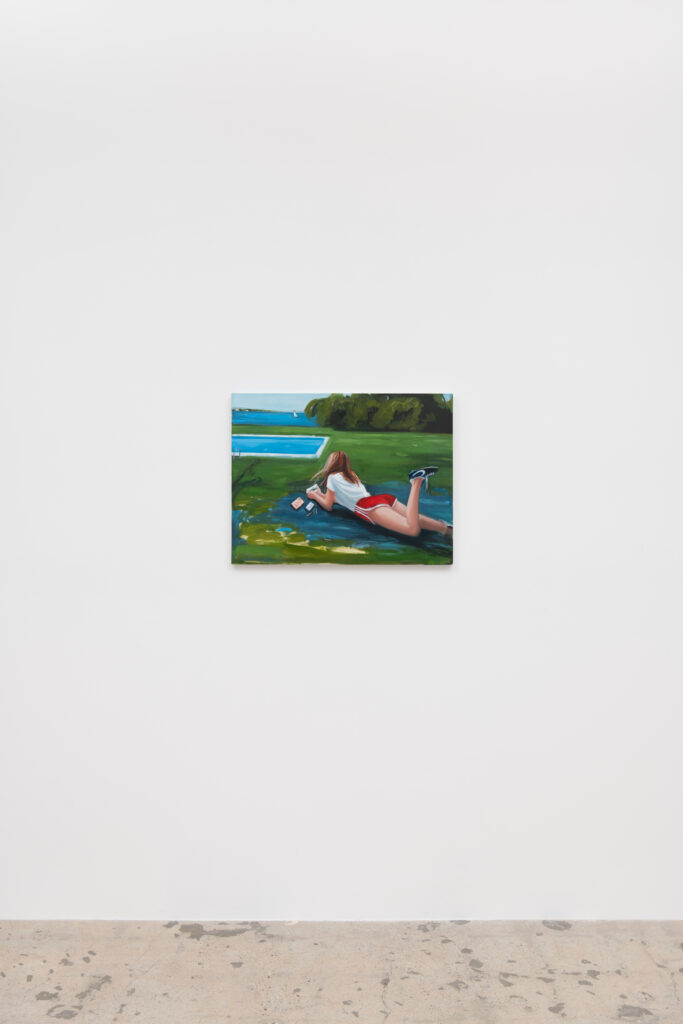
Lyons’ redheaded protagonist exists in an East Coast prep school fever dream. She wanders the halls of a lavish home and dons designer labels but with a decidedly unaffected air that belies her privilege. Her apathetic expressions and slouchy posture hint at the tedium of this chapter of her life as if she knows all too well that she’s playing a waiting game on the cusp of adulthood for bigger and better things right around the corner. In The Afternoon in August (2023), the girl lays alone in a grassy field, kicking her sneaker-clad feet, gazing into the horizon, and seemingly yearning for an inscrutable something. Lyons cleverly captures the universal feeling of waiting for your childhood to end with a mixture of apprehension and exhilaration.
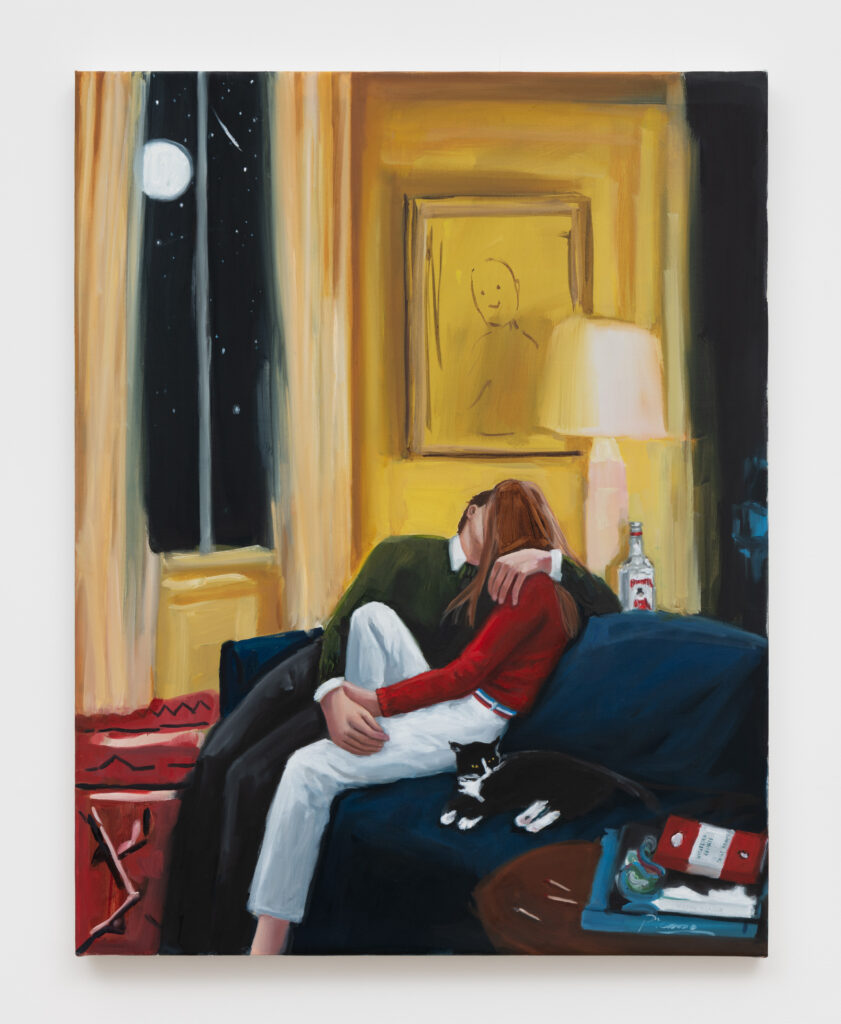
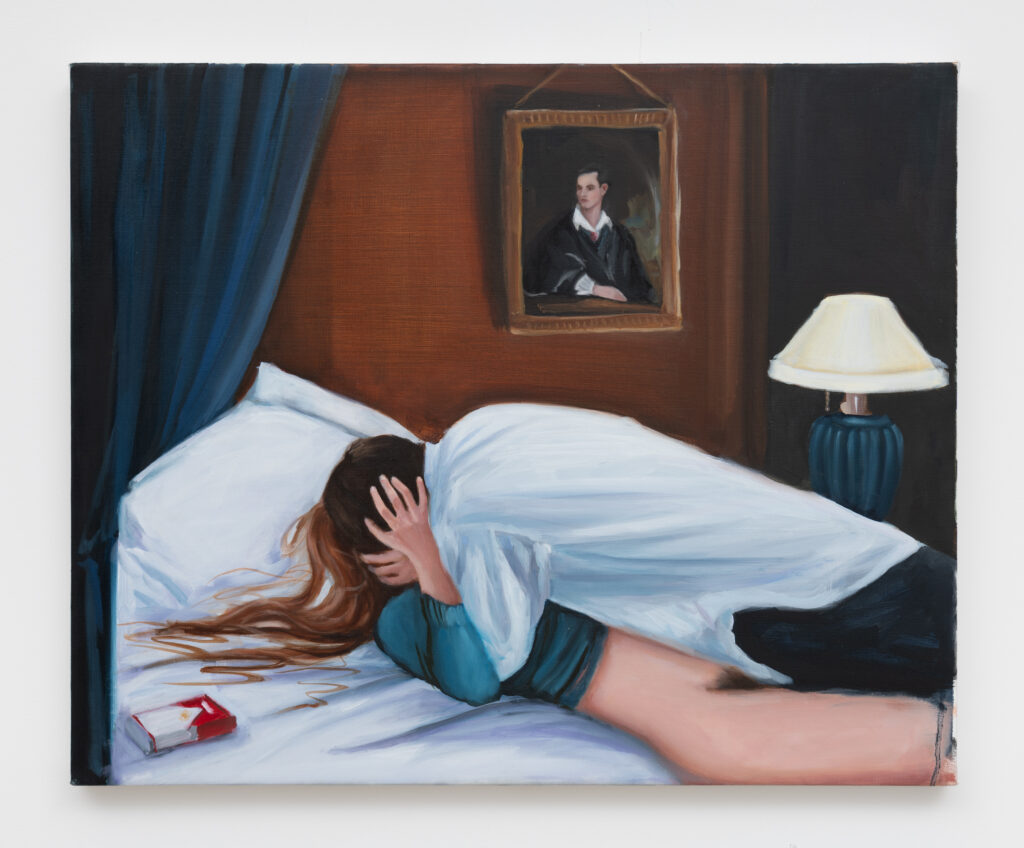
At the same time, revealing a multifariousness unequaled by anyone who has never been a teenage girl, she is driven to explore new, grown-up experiences. In many scenes, the backdrop is littered with loose matchsticks, cigarette boxes, and liquor bottles. In others, she kisses a dark-haired boy in varying states of undress, her first sexual forays happening under the watchful eyes of a recurring feline friend and beaming full moon, in The Bright Midnight (2023), or a stern 19th-century portrait, in A Crush on Byron (2023).
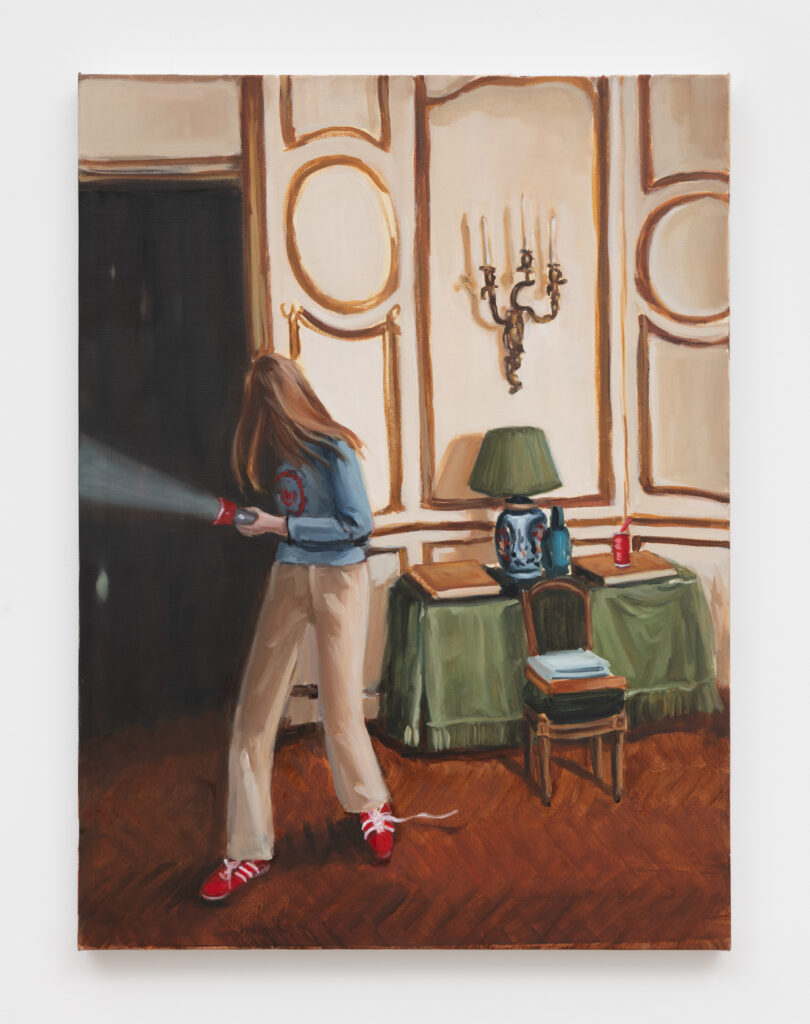
To counteract the mature themes and emphasize this transitional state of her subject’s life, Lyons inserts reminders of youth and mischief. In Mystery Down the Hall (2023), the girl wields a flashlight and, with her shoelace childishly askew, prepares to investigate a dark hallway a la Nancy Drew, signaling girlish curiosity and the thrill of the unknown at that ripe age. Lyons also carefully fills out her world with sentimental and lighthearted emblems of adolescence — a baggy Mickey Mouse tee, a copy of “Wuthering Heights” more than likely assigned as summer reading, a cup of lemon Italian ice eaten with a flat wooden spoon, a red solo cup sipped from while curled up on the ground, a bedroom wall poster of David Bowie. Lyons masterfully colors the titillating gray area between being a kid at heart and wanting to be seen as so much more. She reminds viewers that they, too, once ached for new experiences and daydreamed about who they might become. Perhaps, as in the cheekily titled Dream Date (2023), they even fantasized about dating Bowie.
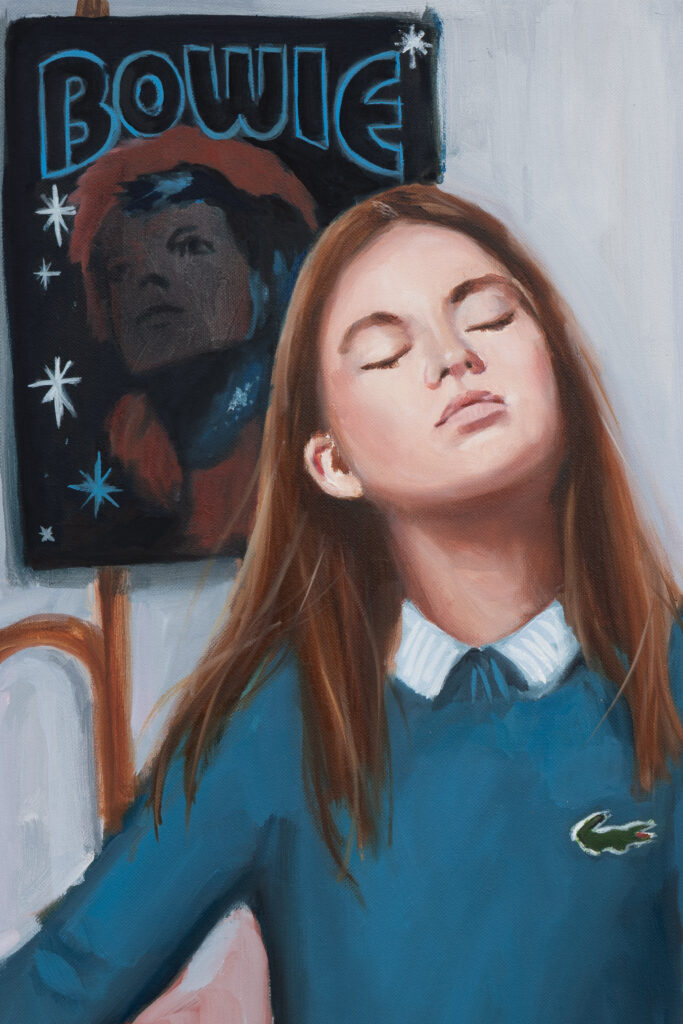
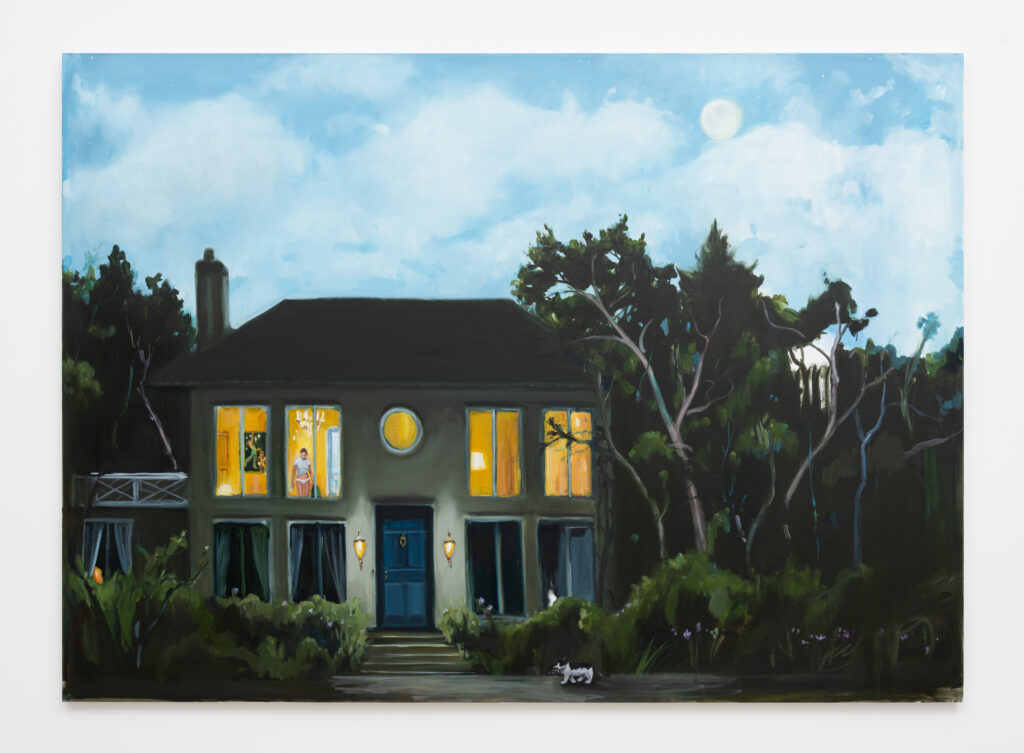
In The Dominion of Night (2024), the only work that features the protagonist from a distance, the artist provides a voyeuristic view of the girl through her bedroom window; the scene is suspended in a disconcerting twilight with her house shrouded in shadows under a curiously clear daytime sky. The scene holds up a mirror to Lyons’ practice of painting herself as a teenager from the outside looking in and highlights the disorienting experience of reflecting on your own childhood with a breadth of understanding your younger self couldn’t even begin to fathom.
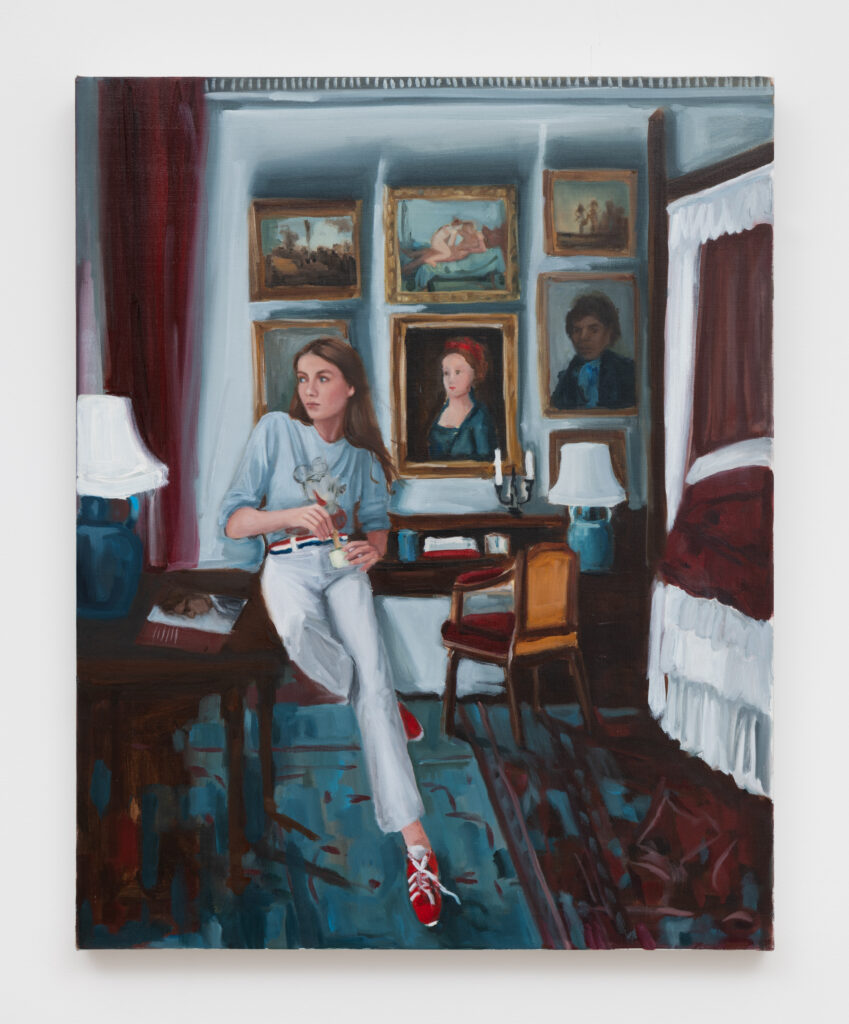
Woven throughout her work, Lyons embraces longstanding artistic traditions such as her renditions of gallery walls, chiaroscuro shades of light and dark, and framing scenes as though they are vignettes of Sofia Coppola film stills. These aesthetic choices speak to the classical and universal nature of youth and innocence.
Overall, Karyn Lyons’ compositions smolder with surrealist undercurrents that make her pieces feel timeless and magical, an homage to the resonance of girlhood memories.
Karyn Lyons
The End of the Night
January 27 – March 2, 2024
Anat Ebgi
6150 Wilshire Boulevard
Los Angeles, CA 90038

